Indonesian Ambassador to Malaysia Hermono says his country extended the temporary freeze on its workers entering Malaysia following soaring death rates in July and August.
The freeze will only be lifted once Covid-19 cases drop and the workers' rights are improved.
The temporary freeze on the movement of its labour force into Malaysia was initially announced by Indonesia’s Ministry of Manpower when the country closed its borders last year due to the global pandemic.
Hermono, who like many Indonesians uses only one name, told Malaysiakini that even as Covid cases and deaths in Malaysia rose dramatically in the third quarter of this year, the death toll among Indonesians peaked at a devastating number.
“There were 408 deaths in July and 700 deaths in August and most of them died in their dwellings because they were too afraid to go to government hospitals,” he said in an exclusive interview.
He added that Indonesians in Malaysia feared arrest, deportation and the exposure of the locations of their homes in the country.
Hermono said the virus claimed the lives of 1,372 Indonesian workers in 2021 and four in 2020.
He said most Indonesian workers in the country were undocumented, which placed them in vulnerable situations as it allowed their employers to avoid their responsibility for the workers' rights and well-being.
“The sectors that employ the greatest number of undocumented workers are the construction, services, smallholder plantations and as domestic workers,” he said.
He added that most Indonesians who succumbed to Covid-19 were from the construction and services sectors, which included jobs like cleaning services.
Hermono said the embassy figures were based on those who sought “release letters” for hospitals to discharge the bodies for burial.
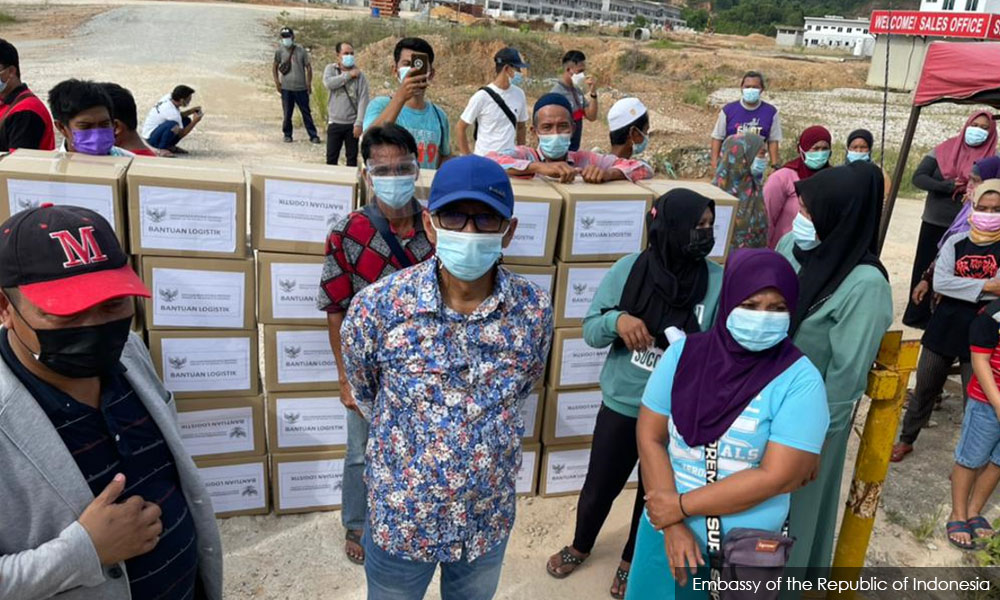
“Even though they passed away at home, they had to inform the police who would determine that there were no criminal elements around the death of the person.
“So, the letter explains that the deceased was an Indonesian citizen and requests that the hospital releases the body,” he said.
He added that the high numbers did not include documented workers and those who were in deep hiding.
Last week, Migrant Care Malaysia representative Alex Ong spoke to Malaysiakini highlighting that the oil palm sector has recorded at least 40 Covid-19 clusters spread across six states.
Ong said that there are more than 300,000 undocumented migrant workers whose vaccination status are unknown and are feared to be seeking refuge deep in these plantations.
Klang MP Charles Santiago also highlighted that at least 3,500 migrant workers were turned away at the end of Selangor’s Covid-19 vaccination programme (SelVax).
This revealed that a sizeable population of unvaccinated migrants still exist, especially in large industrial towns in Selangor.
Charles said Malaysia would pay the price for not focusing on the vaccination of undocumented migrant workers.
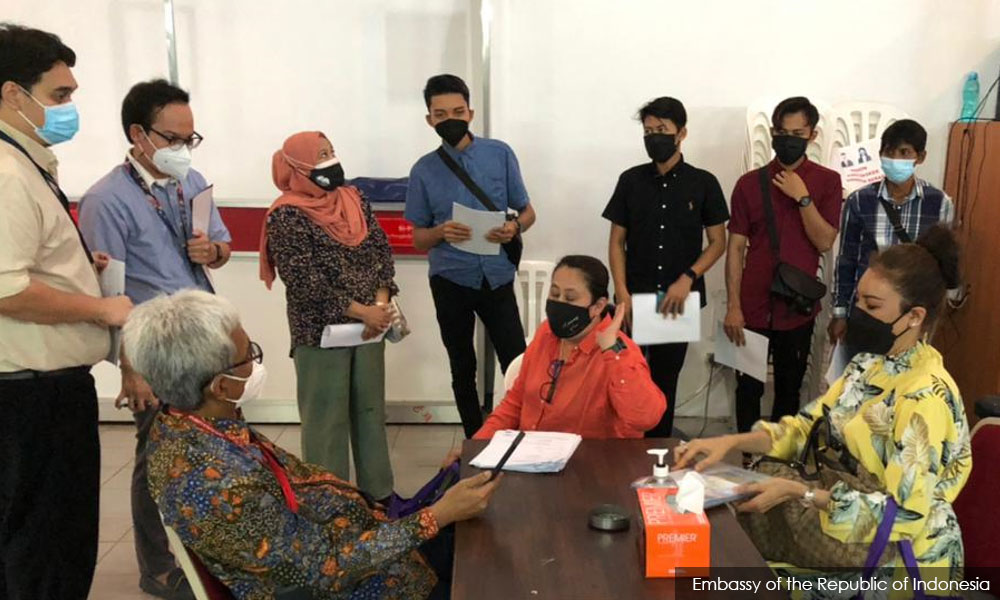
Immediate assistance in global crisis
Hermono said the embassy’s immediate course of action when Malaysia went into lockdown was to start distributing necessities to workers to relieve their hunger and this also included baby formula and diapers.
“The embassy alone distributed around 134,800 packages during the 2020 lockdown and 139,188 packages in 2021.
“However, this number exceeds 230,000 packages in 2021 alone, if you take into account food packages distributed through our five Consulate Generals in Kota Kinabalu, Tawau, Kuching, Penang and Johor.
“We also handed out cash assistance, especially to those who needed to settle outstanding rentals and, in some cases, for burials too," he said.
The Indonesian Embassy also started a registry and made announcements on two popular social media platforms for people to reach them.
“We also worked together with many NGOs and identified persons in charge who would report back to the embassy once all the parcels were signed for by the recipients,” he said.
He again emphasised that most recipients were from the construction and services sector who did not have permanent employers.
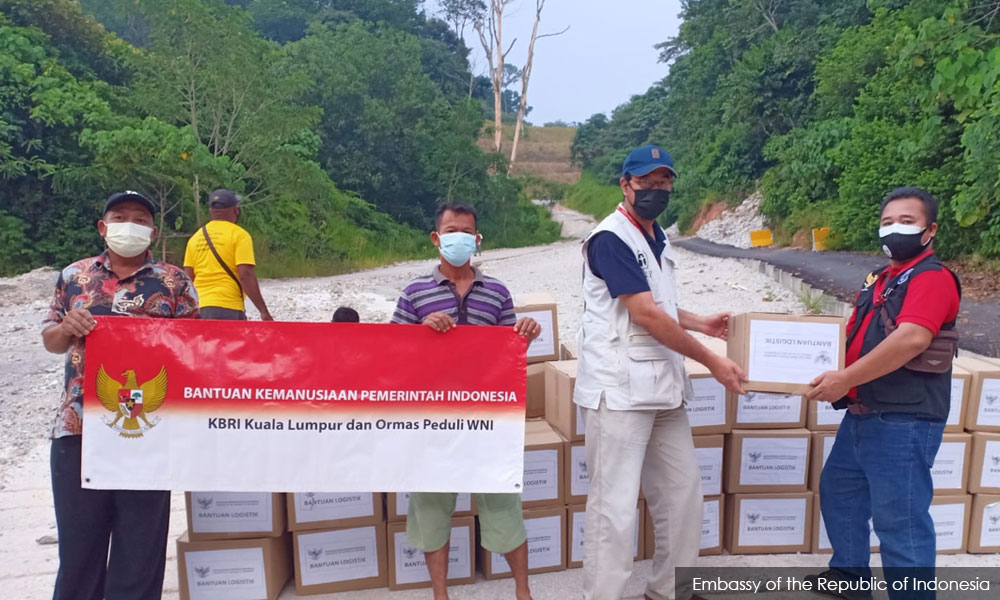
Undocumented workers are very vulnerable
Hermono said the lifting of the temporary labour freeze depended greatly on the inking of an MoU between the two countries addressing the most critical sector – domestic workers.
The second compelling factor would be Malaysia’s guarantee that recruits were protected from labour violations, along with a mechanism that would address violations faced by existing workers in the country.
“We will also monitor the Covid-19 situation in Malaysia because we have lost such a large number of Indonesian citizens here to the virus and are very concerned about the undocumented workers, should there be another spike in cases here.
“Undocumented workers are very vulnerable and there are still many who remain here,” he said.
Hermono said that this would be the second time Indonesia enforced a moratorium on approvals for domestic workers to work in Malaysia.
The first moratorium, he said, came into effect in 2009 and lasted until the two countries signed an MoU on the Placement and Protection of Domestic Workers in 2011, with a validity clause of five years.
The two countries commenced the sending of domestic workers to Malaysia in 2012, but when the MoU expired in 2015, Hermono said negotiations on a new MoU has been ongoing for five years, since 2016, because they have yet to come to an agreement.
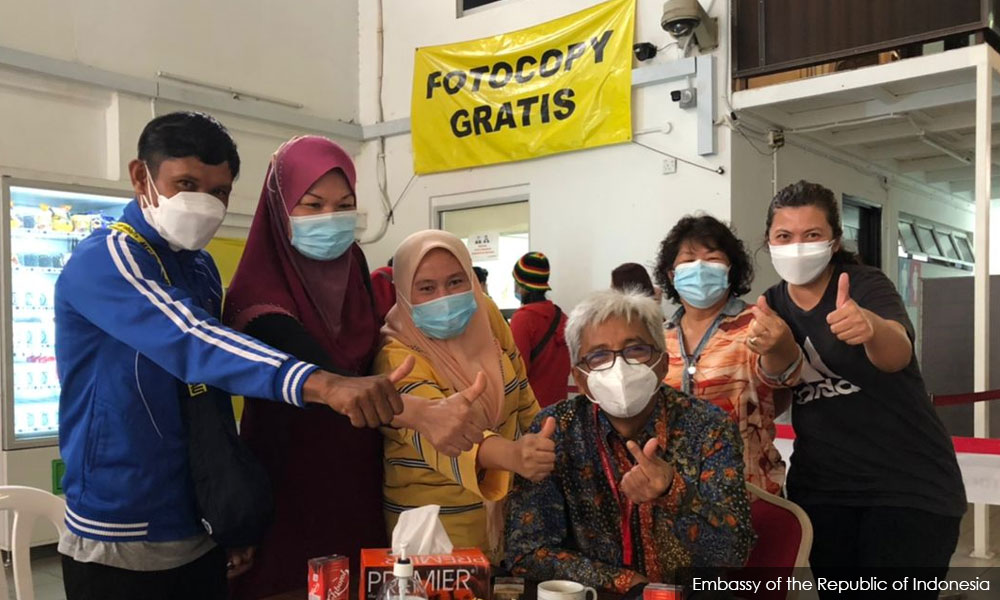
“For us, the conclusion of the MoU is not at any cost. My utmost priority is the protection and welfare of our workers. We have to make sure that this MoU can provide an instrument of protection for our domestic workers.
"If we are not confident that it can provide sufficient protection, we better not send our domestic workers to Malaysia,” he said.
He added that amendments to the labour laws in Malaysia or improvements to the country’s minimum wages would be of no consequence to the desired outcome of the MoU.
Hermono explained that the embassy had housed about 1,700 women at its shelter between 2017 and 2021 with an average of 105 women being housed there in any one month.
“They are mostly from the domestic worker and the services sectors.
“The embassy also plays an active role in helping Indonesians take up cases in the civil courts and about 85 percent of the cases are workers claiming unpaid salaries.
“Some are claiming unpaid salaries of more than 10 years and these women, too, are housed at the shelter because some cases have taken up to five years to conclude, especially when the employers refuse to fulfil their obligations.
“Based on the cases we have seen, it is very important for the embassy to know where our citizens are placed and that there are no elements of forced labour,” Hermono said.
He added that the temporary freeze did not apply to those domestic workers who returned home during the onset of the pandemic but still had a valid permit, as they could re-enter to work here.
But, he said, there would be no new recruits until the MoU was signed.
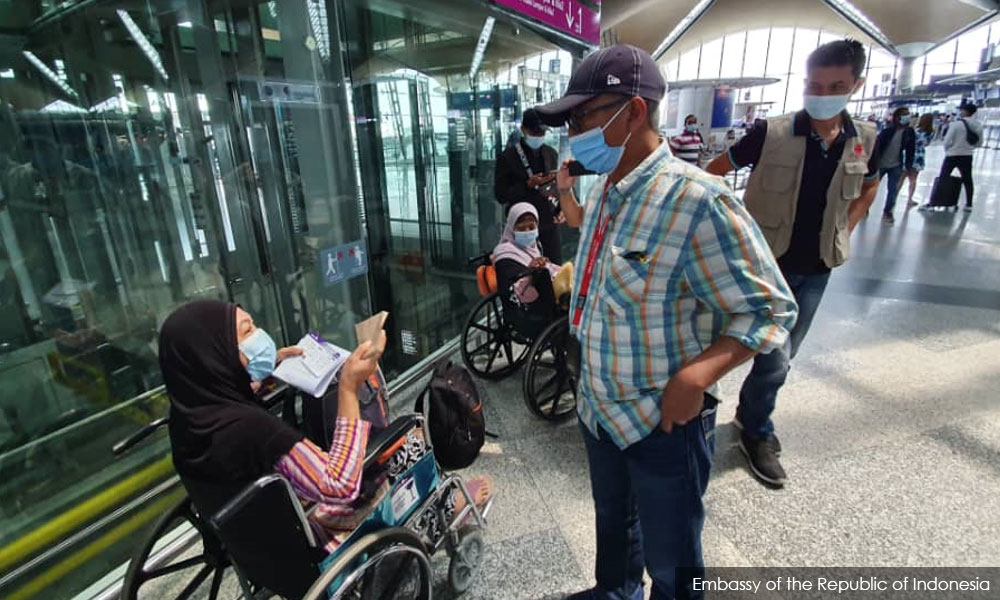
Three areas of contention
Hermono explained there were three main areas of contention to their proposal that addressed elements that could lead to forced labour and comprised restrictions on types of work, the recruitment process and wages.
“We want the type of work to be performed by each domestic worker to be confined into categories so that the domestic worker is not overworked, underpaid and traumatised.
“The same person cooking, cleaning and taking care of the needs of the family will not be able to care for both an elderly person and a baby.
“Currently, a single woman does everything and the work is limitless, with no rest hours in a day or no rest days in a week,” he explained.
He said the new system proposed identifying various categories of work, each for a single person to carry out and the weeding out of all elements of forced labour.
Hermono explained that the second clause in the proposed MoU, which required the abolishment of the “maid-online” recruitment system implemented by the Malaysian Immigration Department, which continues to run today, was crucial in the negotiations.
“A few years ago, the Immigration Department started the maid-online system to enable employers to recruit domestic workers directly from recruiters in Indonesia and once payments are made, the Home Affairs Ministry will issue the permit.
“This process bypasses the embassy’s role in ensuring that all worker protections are met.
“Currently, we don’t know if the employers have a bad record, or if the workers' living conditions are suitable in size and modest comfort, and their basic needs are met,” he said.
“For recruits, we will interview both the employee and employer and the embassy will initiate a system that will not cause any delays in the recruitment process as it is in the best interest of both parties to commence their contract as soon as possible,” Hermono said.
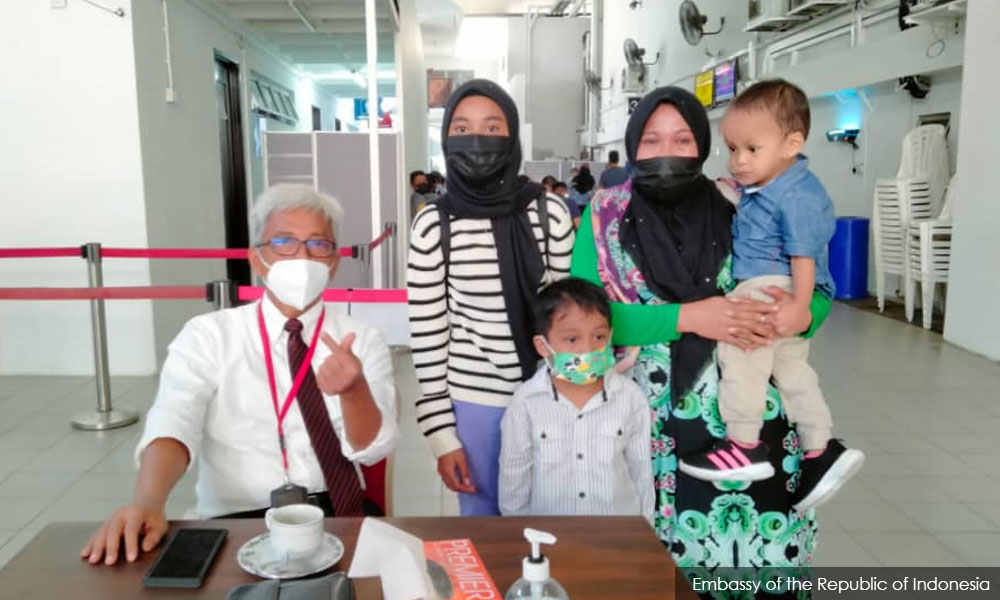
He added that the embassy would engage the assistance of private employment agencies authorised by the Labour Department to conduct the vetting.
Deputy Human Resources Minister Awang Hashim revealed during question time in Parliament yesterday that Malaysia failed to reach an understanding with Indonesia over the five years of negotiating since the MoU expired.
Responding to a question from Seputeh MP Teresa Kok Suh Sim, Awang also said the government had no intention of abolishing the Maid-Online recruitment system.
Kok said the Maid-Online system exposed domestic workers to human trafficking elements and exploitation.
“The ministry was responsible for the protection of informal workers who did not have access to legal protection,” she said.
Recalibration - a way out
Hermono said the recalibration offered Indonesians a way out, estimating that about 300,000 Indonesians returned home since March last year, most of them because it was getting harder to survive without an income.
This was compounded by uncertainties over job opportunities and the easing of the movement control order.
“They are living in constant fear of arrest, so many more will take advantage of this recalibration programme and return home before it expires on Dec 31 this year.
“We have also requested for the recalibration programme to be extended another six months from Jan 1, 2022, to allow more time to progress the return of Indonesians.
"It will also give us a better picture of the undocumented population of Indonesian workers in Malaysia,” Hermono said.
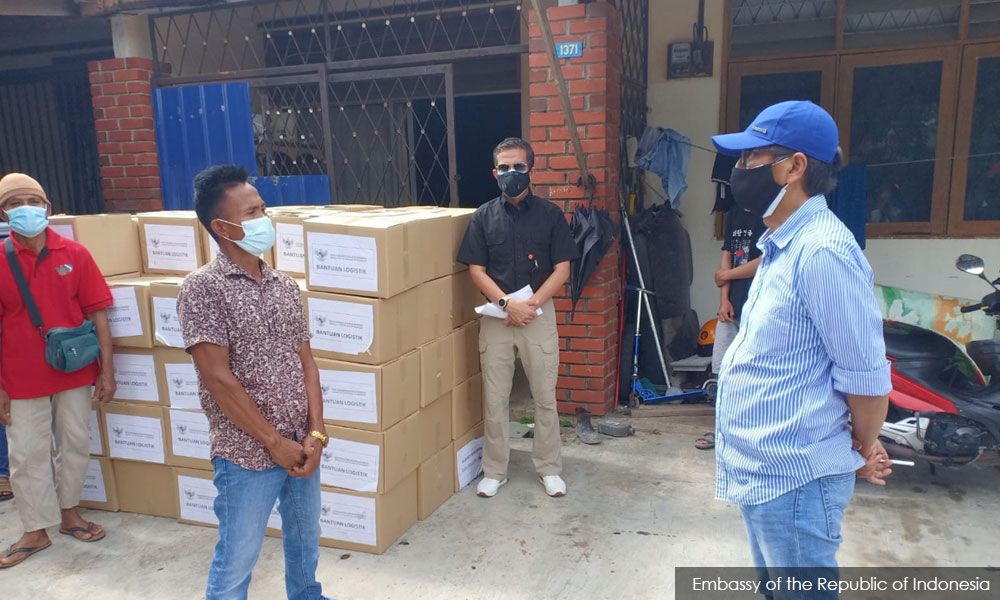
Hermono explained that the root cause of so many problems was the undocumented status of workers and said he frequently encouraged workers to take advantage of the recalibration programme and return to Indonesia.
“We also work with NGOs to organise workers intending to return home via chartered flights.
“According to statistics from the Malaysian Immigration Department, as of September this year, there were about 368,000 documented Indonesian workers in the country, but I believe there is a larger population of undocumented workers.
“The main reason for undocumented workers in the country is because employers employ them, otherwise there is no point in taking such high risks,” he said.
Hermono urged the Malaysian government to take stricter action against errant employers who employed undocumented workers.
When contacted by Malaysiakini, Human Resources Minister M Saravanan said the recalibration programme that was temporarily stalled had already commenced, but Malaysia had no plans to extend its recalibration programme of migrant workers after the Dec 31 deadline.
The future of recruitment
Once the MoU is finally inked, Hermono said they would look into the protection of workers in other sectors and a key element would be to ensure that employers were responsible for the work permits of their workers.
“We will also ensure that every worker has a working contract and request that the home affairs minister only issues permits for contracts endorsed by the embassy.
“This will help reduce the tendency for an undocumented status of a migrant worker.
“In the interest of expedience, the contracts for all workers in other sectors can also be endorsed by the embassy via an online system.”
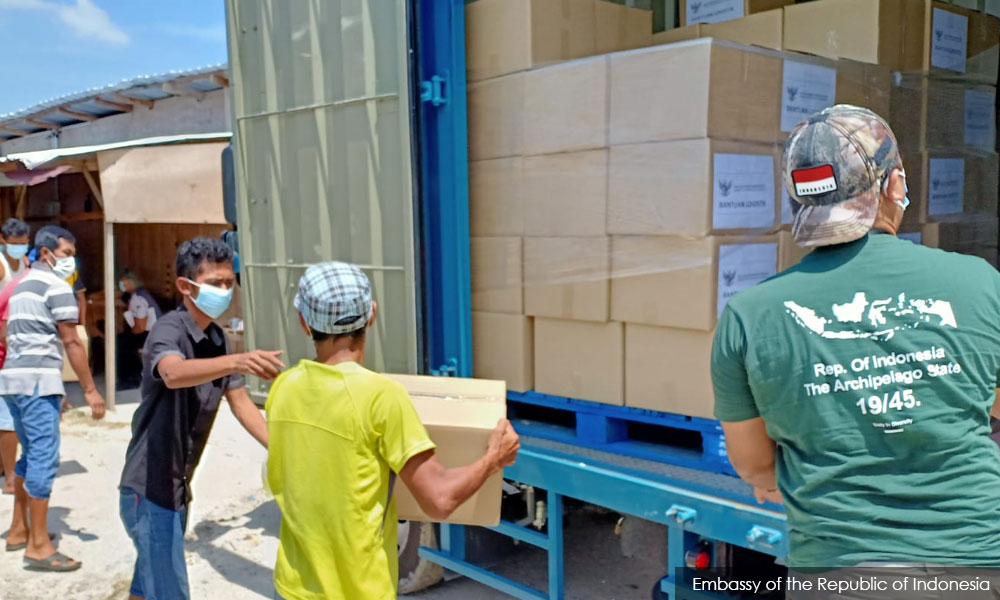
Hermono said Indonesia welcomed the launch of Malaysia’s National Action Plan on Forced Labour (NAPFL) and the recognition by the Malaysian government of forced labour issues in the country.
“This is a positive indicator of the government’s seriousness to tackle forced labour issues in a comprehensive five-year plan.
“Indeed, we should take advantage of this good momentum for stronger and mutually beneficial bilateral relations,” he said. - Mkini




No comments:
Post a Comment
Note: Only a member of this blog may post a comment.